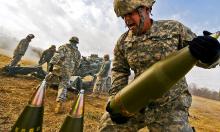India does not need anyone's permission to rise as a new superpower and replace US
Pravda.Ru special correspondent Daria Aslamova spoke in India with famous editor and journalist, former Minister of State for Foreign Affairs of India Mobasher Jawed Akbar. He explained what India can offer Russia in exchange for oil, why New Delhi’s position towards Moscow is not neutral, and how India will soon become a superpower.
Very nice to have this interview with you, Mr. Akbar. We would like to talk to you about the current state of affairs in the relations between India and Russia, as well as about BRICS, which is celebrating 20 years of its history soon. What has India achieved as a BRICS member?
The purpose of BRICS is very important. The secret of success in the 21st century is to create groups that can promote the welfare of the people. We are living in the times of nation-states, not of empires. It does not mean, of course, that there are no empires. Some people want to have quasi-empires. The whole purpose of the nation state is the economic development. BRICS is an exercise in expanding economic development with the implicit reality that economic development and conflict do not go together. Conflict eats away prosperity.
Is it hope or is it reality?
Well, all reality and all changes begin with hope.
Is that why BRICS unites such two different countries like China and India? Is BRICS a platform for China and India to speak?
No, not at all. China and India represent two of the most important countries in the emerging century. We have our bilateral differences, but it does not mean that we can not agree on what is good and what is bad for us. I hope and we are rational countries, and that is what must propel policy. Policy is a triumph of reason, logic and common good. It is also a triumph of common sense over inherited conflict. Otherwise, every country is going to remain deeply embedded in hostility. That was the world of the 20th and the 19th centuries. Hopefully, this is not going to be the world of the 21st century, although some of the news that we have in the 21st century is not positive at all. Consequences of the 20th century still have their influence on the 21st century.
BRICS looks like a political platform in the first place, whereas it does not seem to be that good as an economic one. The turnover of trade between Russia and India last year was evaluated at $60 billion, although India's exports to Russia accounted for only $3.3 billion, which is ridiculous for such a large economy as India. India can offer so many things for Russia. How can we manage this imbalance? Why doesn't India want to trade with Russia?
Are you serious when you're saying that India doesn't want to trade with Russia? India is buying Russian oil when the whole world stopped buying it.
Yet, India is selling only medications to Russia in return.
Excuse me, but trade requires two people to agree. It's not only about what India wants to sell — it's also about what Russia wants to buy.
But what can you offer?
We can offer whatever you want to buy — lobsters, for example. Seafood is exported, it has a very big market in Europe. India has many goods, but some countries that have no knowledge about India and all the changes that the country has been through in the last ten years — they still think of India the way it was in the 1990s. If I say that Russia has not changed since 1990, I would be completely wrong, because Russia is completely different today. One of the things that we do need more in order to solve this problem is not about great platforms like BRICS or Tricks or whatever щнг want to call them. We need more interaction with people like you, who can carry the message through evidence in their eyes. That's how public opinion changes. Public opinion includes opinions of decisions-makers and businesses, who still believe that Western European products are bettie than any Indian product. If some people believe that Indian cars are not as good as European ones, then they have not seen the Indian cars.
Actually, the problem is not about Russia's reluctance to buy from India. When BRICS started, it was believed that the bloc will have common currency, common central bank and everything else to get rid of the dollar peg. Today, Russia has accumulated millions and millions of Indian rupees, but we do not know what to do with them because they are not convertible. This is a big problem, and we are all slaves of the US dollar. How can we put an end to this?
You must never make the ideal the enemy of the good. Even though BRICS, the UN, the SCO are not delivering up to what they are ideal, it does not mean that they should be disbanded. So much of decision making depends on understanding. When I talk to you, I can understand your position on Ukraine better, and when you talk to me, you can understand my position on regional conflicts better. One of the reasons why organisations like BRICS emerged is because the United Nations has not delivered. The UN has been sabotaged. Do we have to wait for the UN to become ideal or do have to carry on and do what we can do? We do not live in the ideal world and we never will. Conflict is as old as Adam and Eve. The management of conflict is a challenge for every generation. As for India and Russia, this fight is apparent. Some believe there is roller coaster in our relationship, but I believe that it has been developing very well.
Today, against the backdrop of the big confrontation with the West, Russia needs friends, but India wants to remain neutral.
I think you must understand the Indian position. It's not a question of being neutral, which means no position at all. You must understand one thing — there is no law against having two friends.
But the situation is that your friend is our enemy so what shall we do?
Enmity is not an end in itself. You had the Soviet Union versus the Western bloc. The relationship was as cold as the Russian winter. Now, there is a talk, at least. There were many people in the world who believed that the fall of the USSR marked the rise of the unipolar world with one superpower being in charge of everything. That's not how the world functions. Many parts of the world think differently. We still need to maintain engagement. I think that India is the perfect bridge nation.
However, bridge is always dangerous. You may have heard what Samuel Huntington said in his work about bridges in this clash of civilisation.
Huntington quoted me two or three times in his book, and I do not know whether I should be happy or sad about it. I do not have to go by his definition of what the term means. I go by my definition. One of the greatest advantages of Indian policy is that we have friendships across binaries. Indian prime minister went to West Asia, where he expressed support for Israel, but he also got the highest honour of the Palestinians. This is not happening at the expense of our relationship with Israel with either country. Russia's conflict with Ukraine has been going on for a few years, but the Arab-Israeli conflict has been going on before modern and independent India emerged. The ability to be somebody's friend who can help develop understanding on both sides is a unique position that we can not abandon.
Many call India "a global swing state" because of that.
Well, having conversations doesn't mean swinging. We are happy to have many friends. Russia has a relationship with China. The Chinese describe this relationship as 'permanent partnership'. India is not going to abandon its friendship with Russia because of that, you see.
But India and China are members of the BRICS, the two countries have an impressive trade volume.
Exactly. We have a conflict with China on the border, this is a very difficult conflict, but we still have trade with China. That is where one must understand India. China is willing to trade with us too. China has an advantage, because the balance of trade is in China's favour. Yet, India does not allow this hostile aspect to interfere with other aspects of our relationship.
This may not finish good, it may take us all to Third World War.
I am terrified at the thought of being misunderstood. I do not meant this in color terms. We are not black and white. We are brown.
India is going to change its name to Bharat, its ancient name. I know it's for internal use only, but…
No, no, I am sorry. This was the term used by Jawaharlal Neru, by the Constitution of India.
But as far as I know it is going to be used officially, for external use as well.
No, no, the country is called Bharat and that is India.
But you are using this name at G20 too.
But what's wrong with that?
There is nothing wrong. It appears to me that India, while paying respect to its tradition, is sending a strong political message, because it was British colonisers that gave India its name.
We are generous not to abandon the past in a search for a cultural reassertion. Basically, India is not a British creation. The name of the country, India, is derived from '-ind' - the land across 'Ind'. 'Ind' used to be an Iranian term for 'Indus'. This is a very indigenous thing, but it's under the Constitution of India. Ghandi used to call India Bharat.
However, many start speaking about such things as Bharat ideology and Bharat nationalism, etc.
Ok, I am going to use "India" and nobody is going to send me to jail for it. The existence of Bharat was psychologically denied by many. They were taught that the country's only name was India, but it is not the only name. Why don't you object to calling Peking 'Beijing'? The Chinese use this name for their capital because it is their original name. And Bharat goes back to our ancient texts. I don't have to call you Moscow if your name is Moskva. Every single African country has to carry a burden of a colonised name. I am not saying that India is a colonised name, but it's part of history. A reassertion of our past, or of our Sanskrit language can't be negative — it must be positive.
Many people say that the world is entering the new Indian era, in which India will be one of the most powerful countries of the world. India is on the way to become world's third biggest economy already. Do you think globalists will regret their decision to make China such a dynamically developing state because China has grown so much? Do you think they will not allow another superpower to emerge — India in this case? They will not make another mistake.
India is not going to become a superpower only if someone else has to approve of that first. India does not need a permission for that. India will find its own way into the future. India has its own economic ability, strength and talent. India is not going to become a superpower for the sake of statistics. India will become a superpower because it is eliminating poverty at an unprecedented rate. India is lifting the poorest of its poor into the middle class. We have 1.4 billion productive people. When you add 200 million people to a productive economy, it starts rising higher. It is growing at a pace of six percent today while the world is struggling with two or three percent of economic growth or even less. It's happening because more and more people in India are becoming productive. Human capital is much more important that financial capital and all this makes India one of the rising powers of the century.
Does India plan to become a superpower though?
We do not see it as a military term. I am going to say something that you may choose not to believe. We have the Defence Ministry, and we really mean it. We don't have an Offence Ministry. India has never attacked anyone. India didn't attack in 1962. The Indians paid a huge price for colonialism. Millions and millions were starved to death. I would not want to choose starvation as a way for me to die. There is no worse to die, I would rather take a bullet. When we became independent, we defeated colonialism. The British and French colonialism began in India and then it died here too. Within ten weeks, a country that was created by means of artificial politics, our neighbour, attacked us. We didn't begin the war over Kashmir, Himalayas, we didn't begin the war of 1971 — it was Pakistan that attacked. India has no record of offence, but at the same time, and please do not misunderstand me here — we also know the meaning of defence. Defence means that not a single inch of our territory shall ever be compromised. Anyone who may want to attack us will be held accountable, and we have shown our capability of doing that. For us, security means the security of our Motherland.
Click here to see the video of the entire interview
Subscribe to Pravda.Ru Telegram channel, Facebook, RSS!




